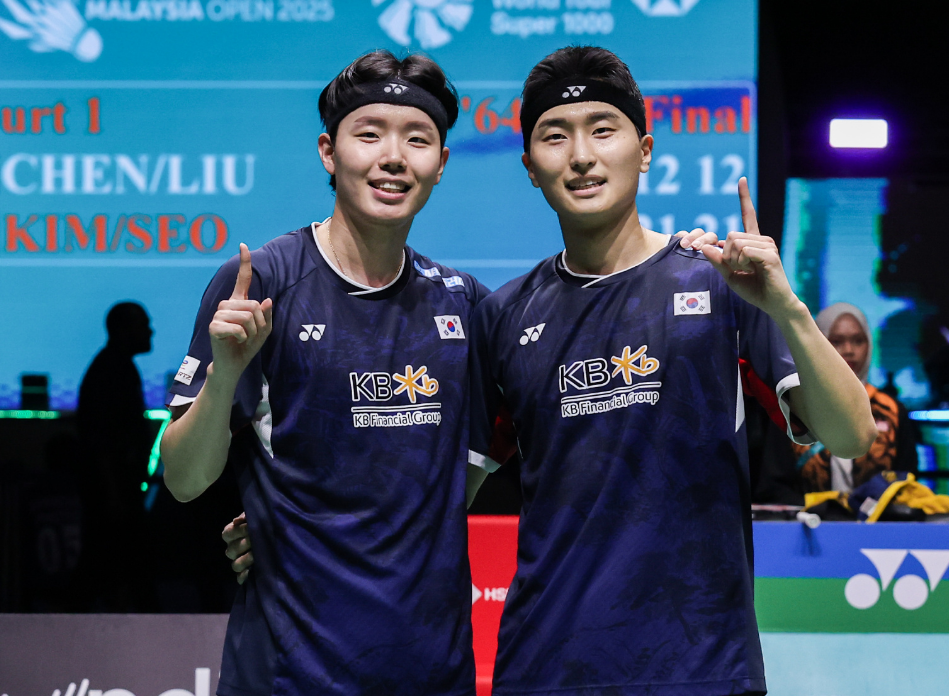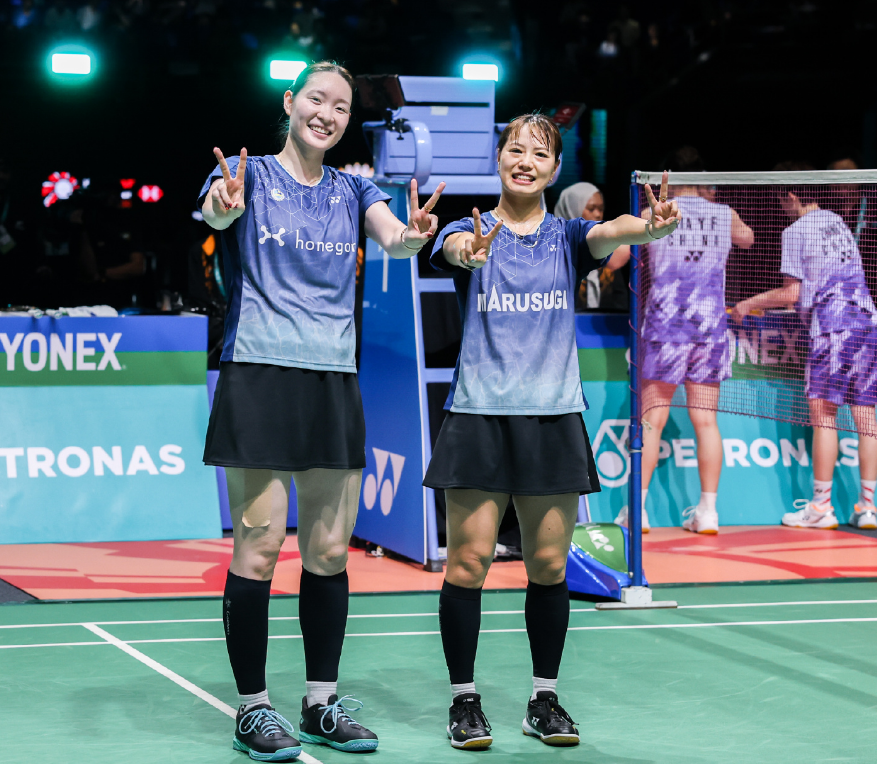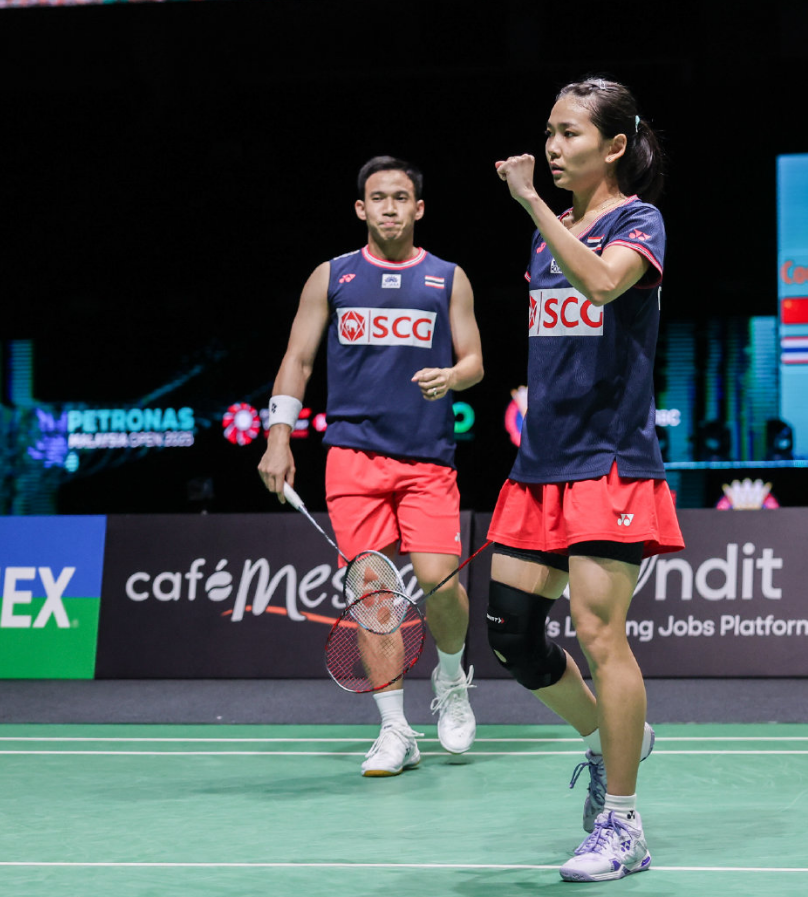On January 20th, the second major event of the Badminton World Federation in 2025, the India Open, came to an end. After the first two major events, a rare new situation has emerged in the world of badminton doubles: "second marriages" are thriving while original partnerships are cold and quiet.
Let's take a look at the doubles situation in this year's first major event, the Malaysia Open:
Men's Doubles:
The champions were South Korea's men's doubles pair, Kim Won-ho and Seo Seung-jae. Kim Won-ho used to play mixed doubles with Jung Na-eun, winning the silver medal at the Paris Olympics; Seo Seung-jae played both men's doubles and mixed doubles, partnering with Kang Min-hyuk in men's doubles and Chae Yoo-jin in mixed doubles, winning the men's doubles and mixed doubles titles at the 2023 World Championships. This year, they are "second marriages," with a world ranking of over 180 before the tournament (qualifying based on tour rankings, as below).
The new pair of Kim Won-ho/Seo Seung-jae defeated the well-known Liang Weikang/Wang Chang, Rankireddy/Sethi, and then won against Chen Boyang/Liu Yi in the final to claim the championship. They defeated all the original pairs.

Women's Doubles:
The champions were the Japanese pair of Fukushima Yuki and Matsumoto Mayu. Fukushima Yuki is already 32 years old, her past partner was Hirota Ayaka, but they didn't achieve much; Matsumoto Mayu is also 30 years old, her past partner was Nagahara Wakana, and they won the World Championship title. This year, they are also "second marriages," with a world ranking of around 100 at the time.
Fukushima Yuki/Matsumoto Mayu defeated the well-known original pairs of Kim Hye-jeong/Kong Hee-yong, Baek Ha-na/Lee So-hee, Lee Yi-jing/Na Gyeong-eun, and then met Jia Yifan/Zhang Shuhuan, who are also "second marriages," in the final.
Jia Yifan/Zhang Shuhuan, who also made it to the final, are "second marriages." Jia Yifan's previous partner was Chen Qingchen, the new Olympic champion; Zhang Shuhuan's previous partner was Zheng Yu, without much success.
Like Fukushima Yuki/Matsumoto Mayu, "second marriage" Jia Yifan/Zhang Shuhuan were also brave, defeating the world's top-ranked original pair Liu Shengshu/Tan Ning in the semi-finals to reach the final.

In the end, the final between the two "second marriage" pairs saw Fukushima Yuki/Matsumoto Mayu win the championship.
Mixed Doubles:
The champions were the Thai pair Dechapol Puavaranukroh/Sapsiree Taerattanachai. Dechapol's previous partner was the famous Sapsiree Taerattanachai, while Sapsiree used to play women's doubles without much success. Dechapol/Puavaranukroh are also a true "second marriage" combination, ranked outside the top 150 in the world.
At this Malaysia Open, they defeated the original pairs Jiang Zhenbang/Wei Yaxin, Jia Kai'er/Delvau, Wu Xunfa/Lai Jieqin, and then defeated the world's top-ranked Feng Yanzhe/Huang Dongping to win the championship.
All three doubles champions at the Malaysia Open were "second marriage" combinations, with no original pairs. Even more serious is that two "second marriage" pairs met in the women's doubles final.

One event may not explain much, but let's look at the India Open that ended on Sunday:
Men's Doubles:
Runner-up was the "second marriage" pair Kim Won-ho/Seo Seung-jae. They first defeated He Jiting/Ren Xiangyu, then defeated the world's second-ranked Liang Weikang/Wang Chang for the second time, took down the famous Hsieh Tien-chieh/Soh Wooi Yik, and advanced to the final again. Having played two consecutive stations full and faced only top players, they eventually lost in the final.
Women's Doubles:
The champions were once again the "second marriage" pair Ayane Amatsu/Miyabi Itagaki. Ayane Amatsu used to play mixed doubles under her maiden name, Yuma East, and changed her surname after marriage; Miyabi Itagaki was previously unknown, and their world ranking was also behind 180.
This time, they shocked everyone by defeating the world's top-ranked Liu Shengshu/Tan Ning, and then went on to defeat Li Yi-jing/Na Gyeong-eun, Kim Hye-jeong/Kong Hee-yong, and other original pairs, going all the way to the top.

Seeing this, you might think there are many "second marriage" pairs in badminton now?
Not at all, I counted, and among the 32 participating pairs, there are only 2-4 "second marriage" pairs in each event, about 1/10.
But these few "second marriage" pairs, whether they were previously unknown or are now in their twilight years, have come out and turned the world of badminton upside down. No matter how famous the world's top players or Olympic champions are, or how high their world rankings are, they are just defeated by them.
It seems that Kim Won-ho/Seo Seung-jae, a strong combination, winning one championship and one runner-up makes some sense, but even Kang Min-hyuk/Seo Seung-jae, who won the World Championship title at their peak, would never have thought of beating the world's number one twice and winning the championship by defeating two Chinese pairs.

Dechapol, when he was ranked number one in mixed doubles, could not have imagined winning a Super 1000 event by defeating top players and two Chinese pairs in a row.
As for the two Japanese women's doubles pairs, Fukushima Yuki/Matsumoto Mayu and Ayane Amatsu/Miyabi Itagaki, one is past her prime, the other is newly formed, saying that they will win the championship in these two major events at the beginning of the year by defeating the world's number one, the new Olympic champion, and two Chinese pairs, that's something they wouldn't dare to dream of.
It is precisely this group of suddenly emerging dark horses that completely disrupted China's badminton team's plans to win the championship in these two major events. They took away 4 championships and 1 runner-up, and China's very strong men's doubles, women's doubles, and mixed doubles teams only managed to win 1 championship (mixed doubles at the India Open) in these two events. Last year's strongest women's doubles project was left empty-handed.
In the first two stations of this post-Olympic era, being disrupted like this by "second marriage" pairs must have put a lot of pressure on the coaches of China's badminton team, and caught them off guard.
The magical performance of "second marriage" pairs has also completely confused the world's badminton professionals:
One "second marriage" player winning a championship may be accidental, and it's normal for "second marriage" players to win a championship after being paired for a long time, but "second marriage" pairs winning so many championships right after their honeymoon period is simply inexplicable.
If everyone has figured out the tactics of the old pairs, does that mean the decades-long belief in the world of badminton that doubles require chemistry and long-term cooperation is wrong? Should doubles players change partners every six months from now on?
Stop thinking too hard, there's simply no explanation for this, we can only take it step by step.